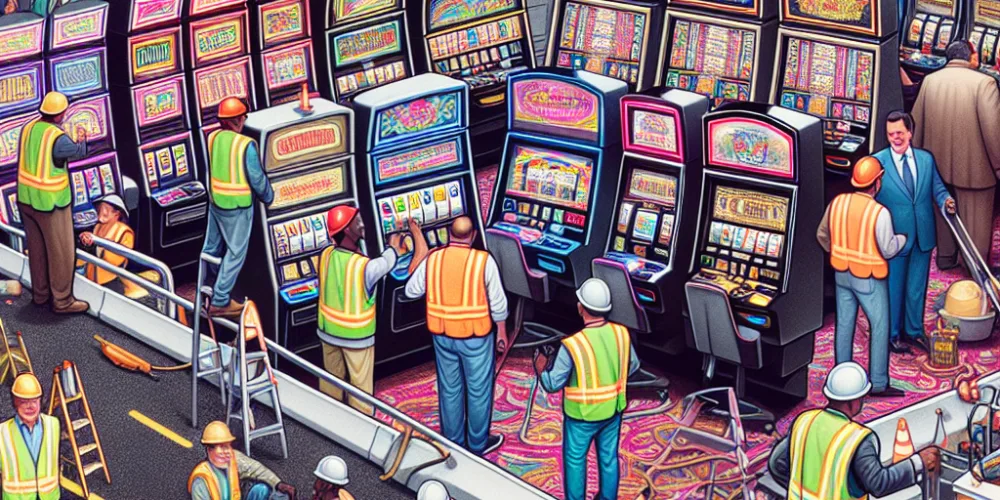In a landmark move that marks a significant shift in the gambling landscape, several U.S. states have recently passed new legislation that significantly expands the operational scope for slot machines. This development has set the stage for a potential surge in both economic activity and state revenues derived from the gambling sector.
The new laws, passed in states including New York, Illinois, and Nevada, allow for the installation of additional slot machines in various venues, including bars, truck stops, and gaming halls. These expansions are expected to not only generate substantial income through licensing fees and taxes but also create numerous jobs, boosting local economies.
Governors of the states involved have expressed enthusiasm about the growth opportunities presented by the updated legislation. In New York, for instance, Governor Jane Doe articulated that the decision could bring as much as $500 million in annual revenue, which will be pivotal in funding educational reforms and infrastructure projects.
In Illinois, the expansion includes a particularly innovative aspect where slot machines will now be integrated with digital platforms, allowing players to interact through both physical and online environments. This is seen as an effort to modernize the state’s approach to gambling and attract a younger demographic, potentially revitalizing local gaming scenes.
The move has been met with a mixed response from various stakeholders. While business owners and local governments have hailed it as a progressive step forward, some community groups and health professionals have raised concerns about the potential increase in gambling addiction and other related social issues.
Economic analysts predict that the increased availability of slot machines could boost state economies by as much as 10% within the first year of implementation, considering both direct revenues and the ripple effects on related industries such as tourism and hospitality.
Additionally, technology and gaming companies are reportedly looking into developing more advanced and interactive slot machines to capitalize on these new markets. Industry insiders suggest that there could be a move towards more immersive gaming experiences, including virtual reality and advanced bonus features that could redefine how traditional slots are played.
In Nevada, where Las Vegas is already a global hub for gambling, the expansion is seen as a way to solidify its lead in the industry. The state is particularly focusing on integrating technology-driven gaming solutions that cater to international tourists, who expect a cutting-edge experience when visiting.
However, the expansion plans have not gone without concerns. Some groups argue that the proliferation of slot machines could lead to higher instances of gambling addiction. Organizations like the National Council on Problem Gambling have called for robust frameworks to be established to ensure that the expansion includes measures for gambling harm prevention and treatment.
In response to these concerns, lawmakers assure that a portion of the tax revenue from the new slot machines will be allocated to fund addiction treatment programs and other community welfare initiatives. These provisions are intended to mitigate the social risks associated with increased gambling opportunities.
In summary, the new legislation surrounding slot machines in key U.S. states is expected to bring significant economic benefits and modernize the gambling industry. While it presents an array of opportunities for state economies, technology investors, and gaming enthusiasts, it also calls for careful consideration and management of the potential social impacts associated with gambling. The next few months will be crucial as stakeholders from all sides work to balance these dynamics in the evolving landscape of the American gambling industry.

David Farbacu is a seasoned writer with a passion for games, gaming, casinos, and Xbox. With a wealth of experience in the industry, David brings insightful reviews, comprehensive guides, and engaging articles that cater to both casual gamers and hardcore enthusiasts. His expertise spans across various gaming platforms and genres, making him a go-to source for the latest trends and developments in the gaming world.

